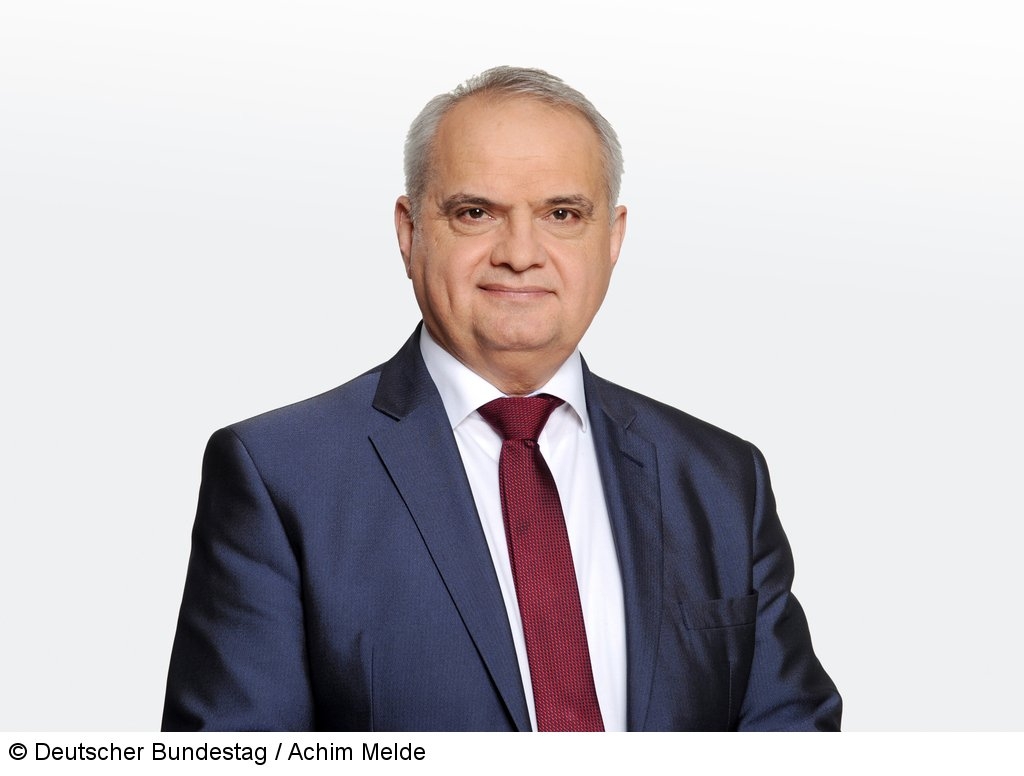The submission names Waldemar Herdt as number 2 candidate for the "Center Party" and gives his place of residence as Jaunjelgava district in central Latvia. It lists him as fluent in German and English, but strangely not Russian, given that he spent the early part of his life in Soviet-era Kazakhstan and received his training as an agronomist there. He moved to Germany in 1993 and according to his official webpage "today lives as an entrepreneur in Neuenkirchen-Vörden in Lower Saxony."
As well as holding a seat in the Bundestag, he is a member of the Bundestag's delegation to the Baltic Sea Parliamentary Conference.
AfD is the third largest party in the Bundestag, holding 91 of 709 total seats.
In contrast the "Center Party" which he is now representing is almost completely unknown. Several of the candidates named on its European list also appeared on the list of the similarly but not identically named "Latvia's Centrist Party" which was the worst-performing party of all in last October's Saeima elections. It attracted just 0.10% of the vote, or 897 votes nationwide to be precise.
In order to participate in European elections in Latvia, parties need at least 500 members.
The Center Party's rather rudimentary website includes a picture of Herdt and party member Aigars Bitāns in which they say they are attending a "Christian prayer breakfast" with Donald Trump in Washington, DC in February. Herdt records the event on social media, where he also posted an explanation of his decision to stand in Latvia.
"I have been asked for help and I am doing what I can to help this small, conservative Christian party," he said.
"My aim is to put the good reputation that we Germans have in Latvia (as in the Baltics in general) into the balance and to see my Latvian colleagues working with our AfD friends in Brussels and Strasbourg!" he added.
But this is not the first time he has dabbled in Latvian politics. In another video posted to his timeline, Herdt can be seen expounding about Latvia in fluent Russian and talking of the need to "protect European civilization" from floods of immigrants. He urges Latvia not to sign the UN Global Migration Compact saying:
"I'm asking you and I'm even begging you: stand up, call your government, do not give it the right to sign the document you do not even know anything about... And yet this document will decide the destiny of your people!"
"This is the decision of a lifetime not only for the people of Latvia but for the whole EU and the European civilization as a whole," Herdt says.
In the end Latvia did not sign the compact, and in accompanying comments below the video, Herdt suggests this was a direct result of pressure exerted by churches.
The interviewer - standing in front of a display containing the logo of Latvia's centenary celebrations - then praises Herdt and warns of the threat immigration poses to the Latvian language - also in Russian. The slogan on the display Sargi uz Mūriem (Guards on the Walls) is used by Evangelical Christian groups in Latvian as part of an ongoing series of events.
Herdt also attended 'The Fourth International Yalta Economic Forum' — in occupied Crimea in April 2018, though in a private capacity rather than as a Bundestag or AfD capacity, and was quoted there saying he hoped for the cancellation of sanctions against Russia.
In other comments attributed to him at a Russian language website, he goes much further saying:
"I think that Crimea was just a pretext for imposing [western] sanctions on Russia. If there were no Crimea, another pretext would be found. Crimea [sanctions] is the political project, as I see it. As soon as we will be able to settle this issue politically or to draw the right vector [in relations with] Russia, the 'Crimea question' will be answered by itself."
He also made some headlines in Germany late last year by criticizing a children's play by renowned dramatist Michael Ende for supposedly Satanic content in a report that named his place of residence as Neuenkirchen rather than Jaunjelgava.
It is not unprecedented for foreign nationals to run on the ticket of a Latvian political party. In 2009, Italian candidate Giulietto Chiesa ran for the For Human Rights in a United Latvia party, forerunner of today's Latvian Russian Union. He was not elected.
In fact Latvia's Russian Union is also fielding a candidate who is the citizen of another EU state: Spanish citizen Alexei Shirov Bagtiukov, a chess grand master.





























